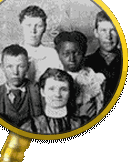What to Know
Teaching Time
two 40-minute class periods
Grade Level
Elementary School
Disciplines
- Reading, Writing, Speaking and Listening
- History
Historical Period
- Development of the Industrial Pennsylvania - 1877-1900
- The Emergence of Modern Pennsylvania - 1901-1928
- The Great Depression and World War II - 1929-1945
- Post-WWII Pennsylvania - 1946-1974
In this lesson, students will learn the meaning of the word "onomastics." Referring to onomastics, students will learn about the origin of 3 baseball team names - Pittsburgh Pirates, Philadelphia Athletics, and Philadelphia Phillies. Students will then create team names and mascots for their own class, supporting their decisions with a clear explanation of the value of their choices.
Objectives
Students will: 1. identify the definition of the word "onomastics." 2. utilize the origins of the names and mascots of the following baseball teams - Pittsburgh Pirates, Philadelphia Phillies, and Philadelphia Athletics. 3. create a team name and mascot for their own class, supporting their decisions with a clear explanation of the reason for their choices.
Students will: 1. identify the definition of the word "onomastics." 2. utilize the origins of the names and mascots of the following baseball teams - Pittsburgh Pirates, Philadelphia Phillies, and Philadelphia Athletics. 3. create a team name and mascot for their own class, supporting their decisions with a clear explanation of the reason for their choices.
Standards Alignment
-
History
8.1.6. A. Understand chronological thinking and distinguish between past, present, and future time.
8.1.6. B. Explain and analyze historical sources.
8.1.6. C. Explain the fundamentals of historical interpretation.
-
Reading, Writing, Speaking, and Listening
1.4.5. C. Write persuasive pieces with a clearly stated position or opinion and supporting detail, citing sources when needed.
1.6.5. A. Listen to others.
1.6.5. B. Listen to a selection of literature (fiction and/or nonfiction).
1.6.5. C. Speak using skills appropriate to formal speech situations.
1.6.5. D. Contribute to discussions.
1.6.5. E. Participate in small and large group discussions and presentations.
1.6.5. F. Use media for learning purposes.




